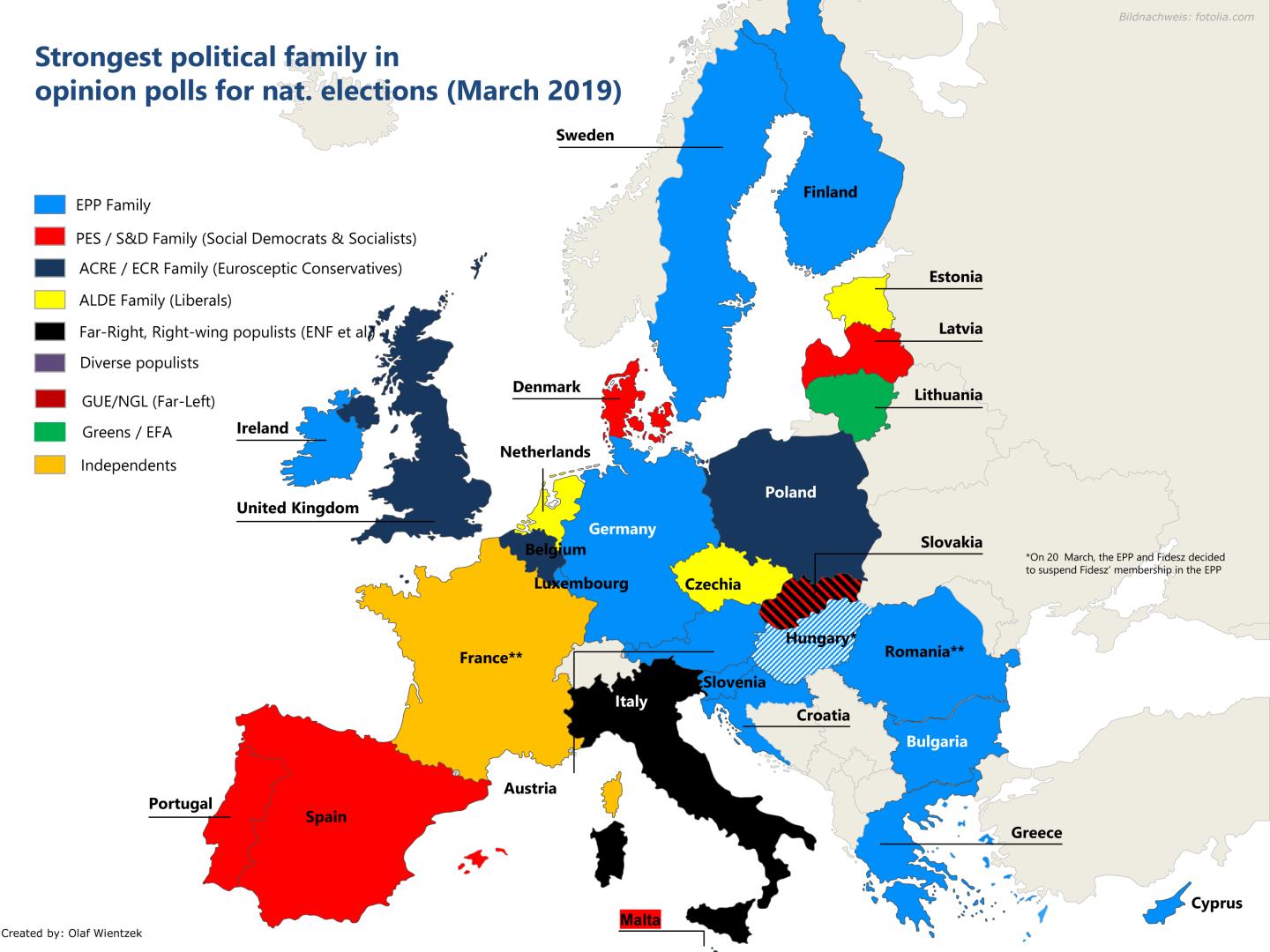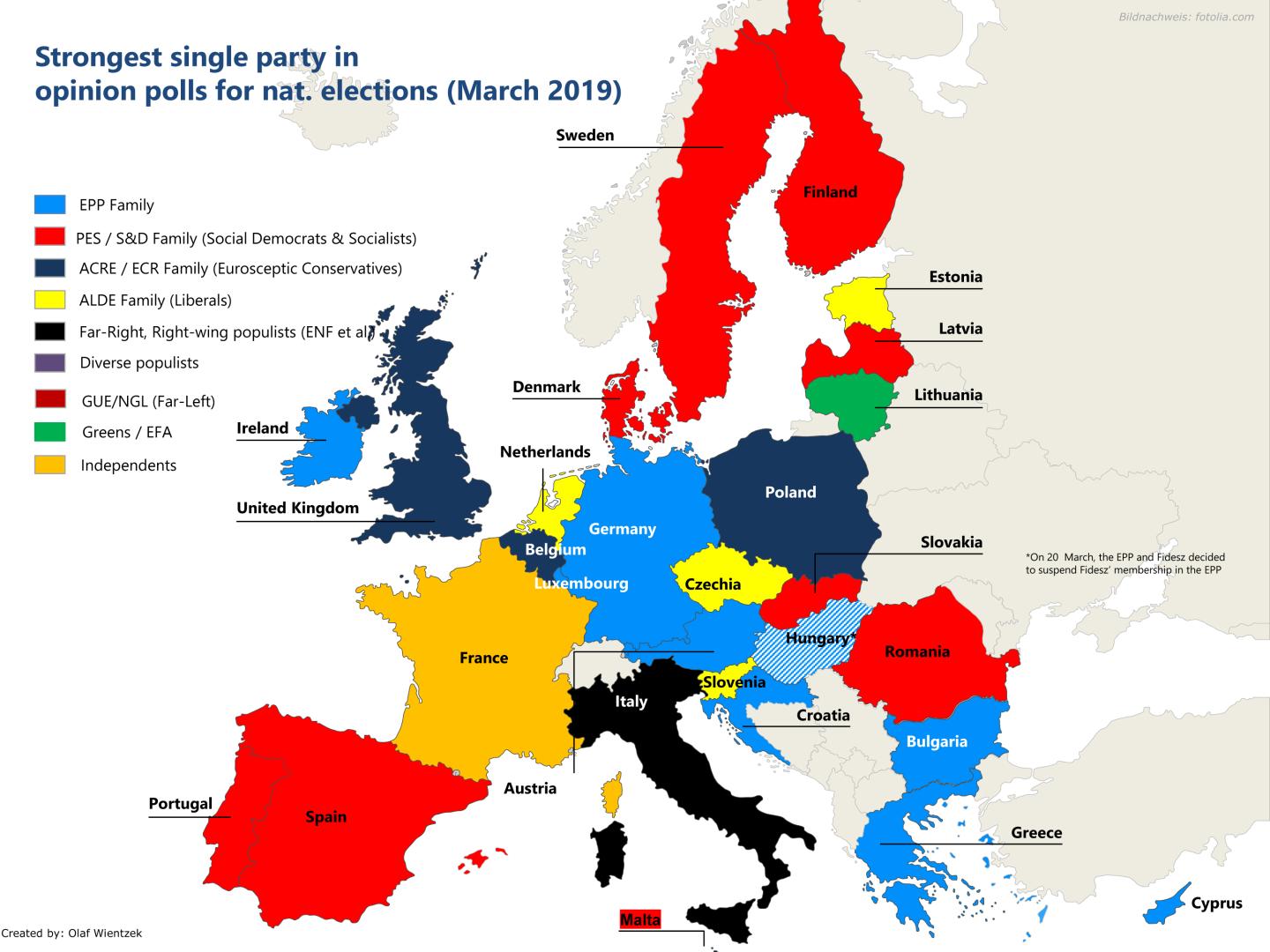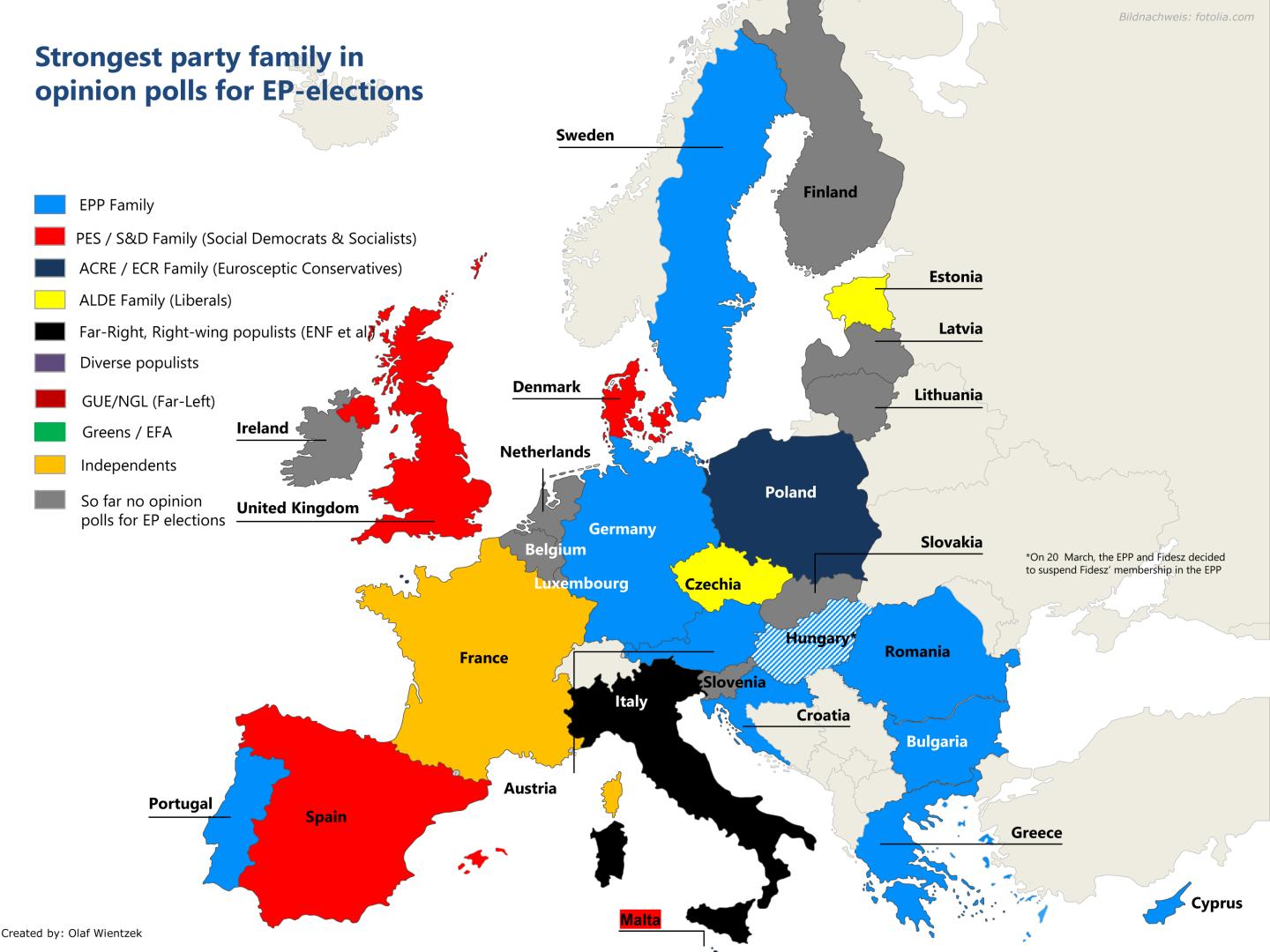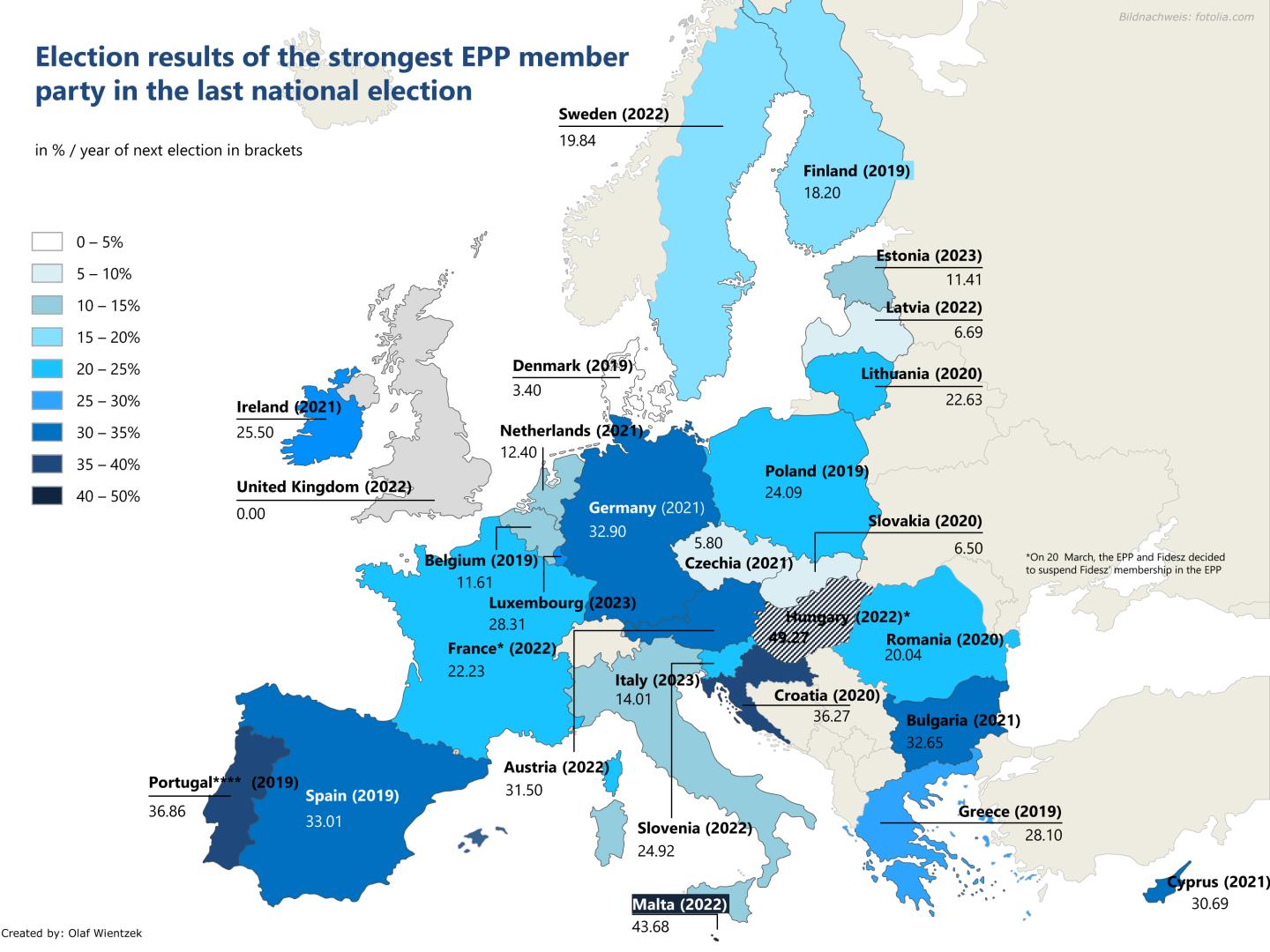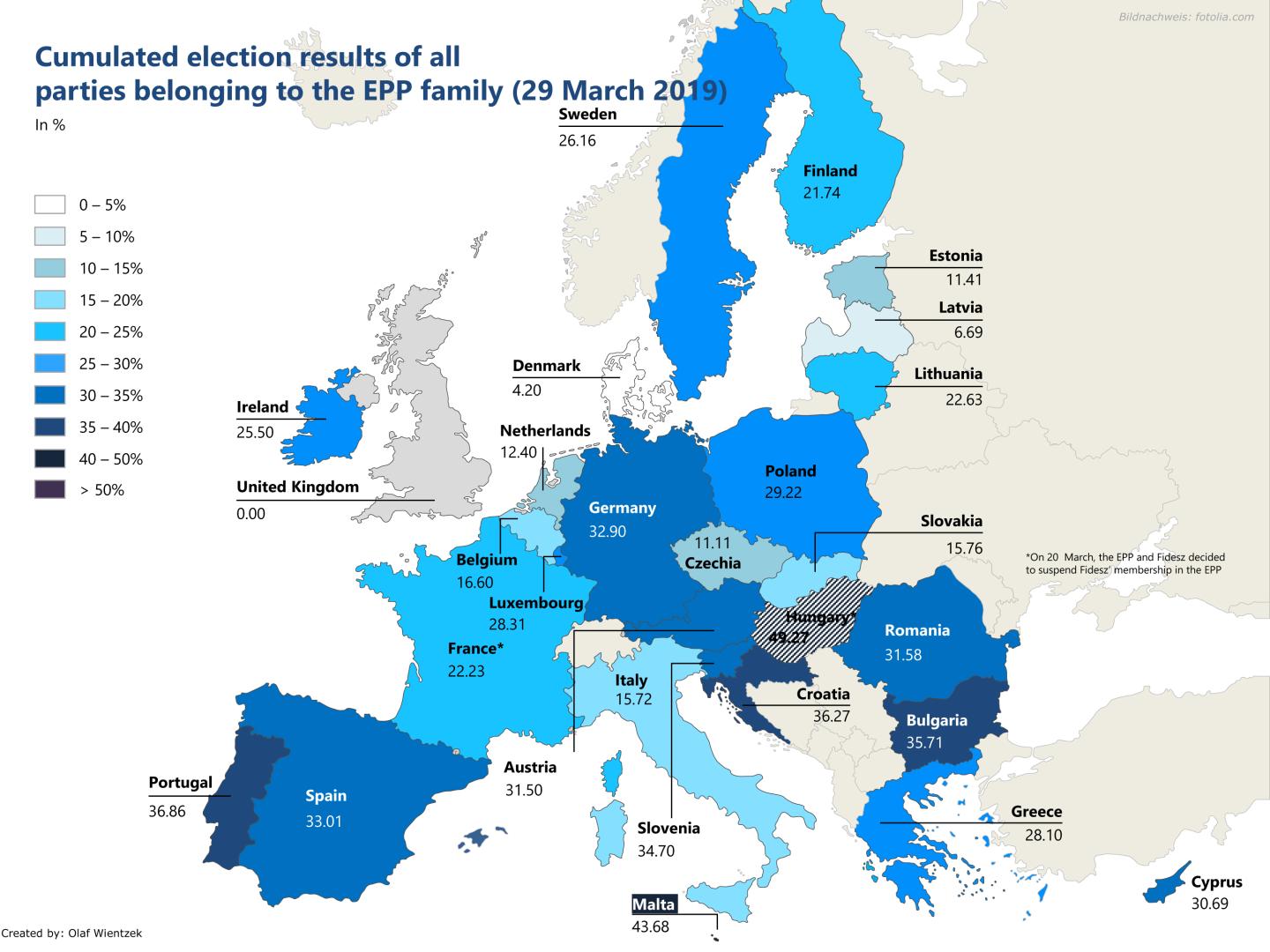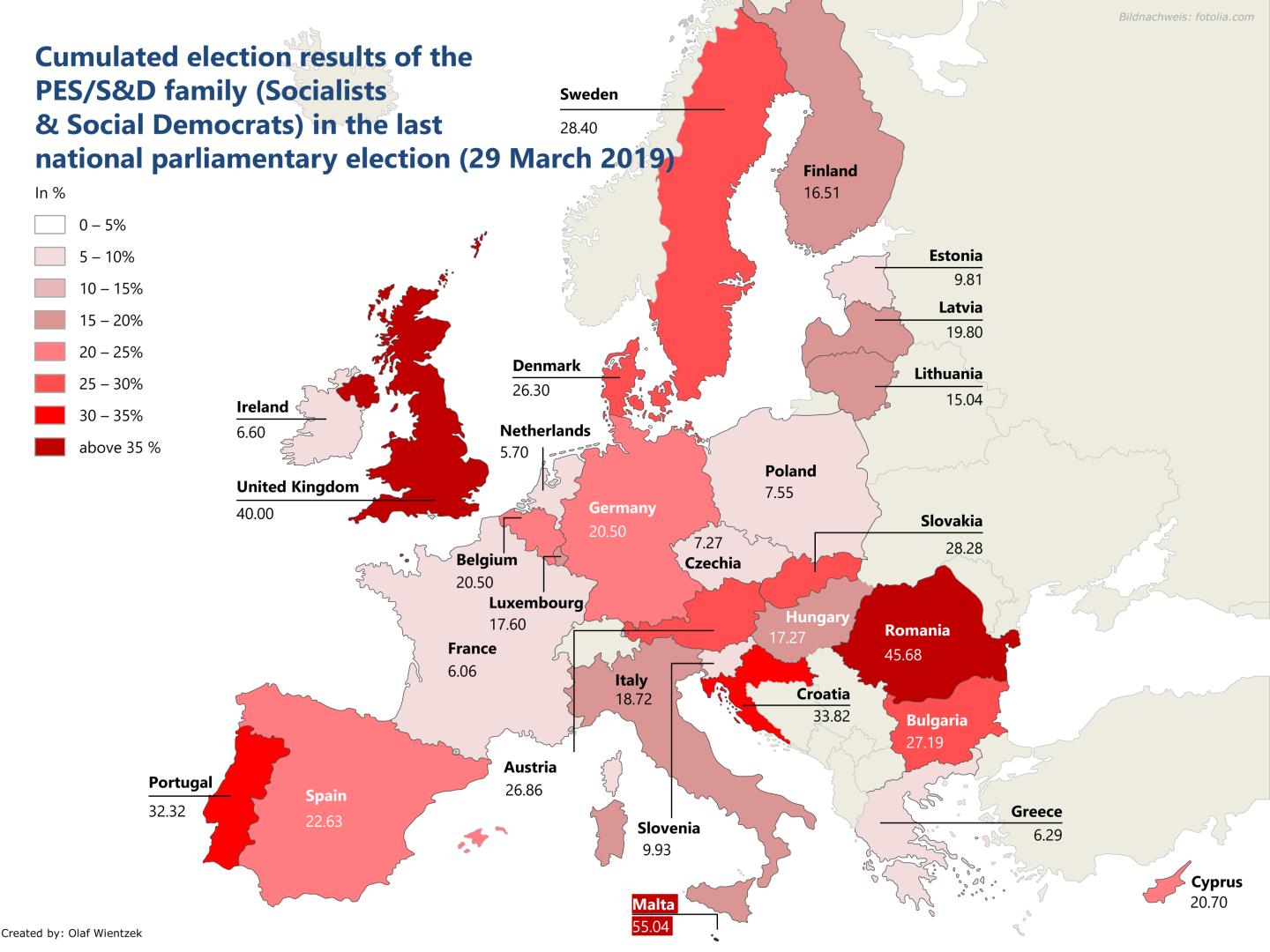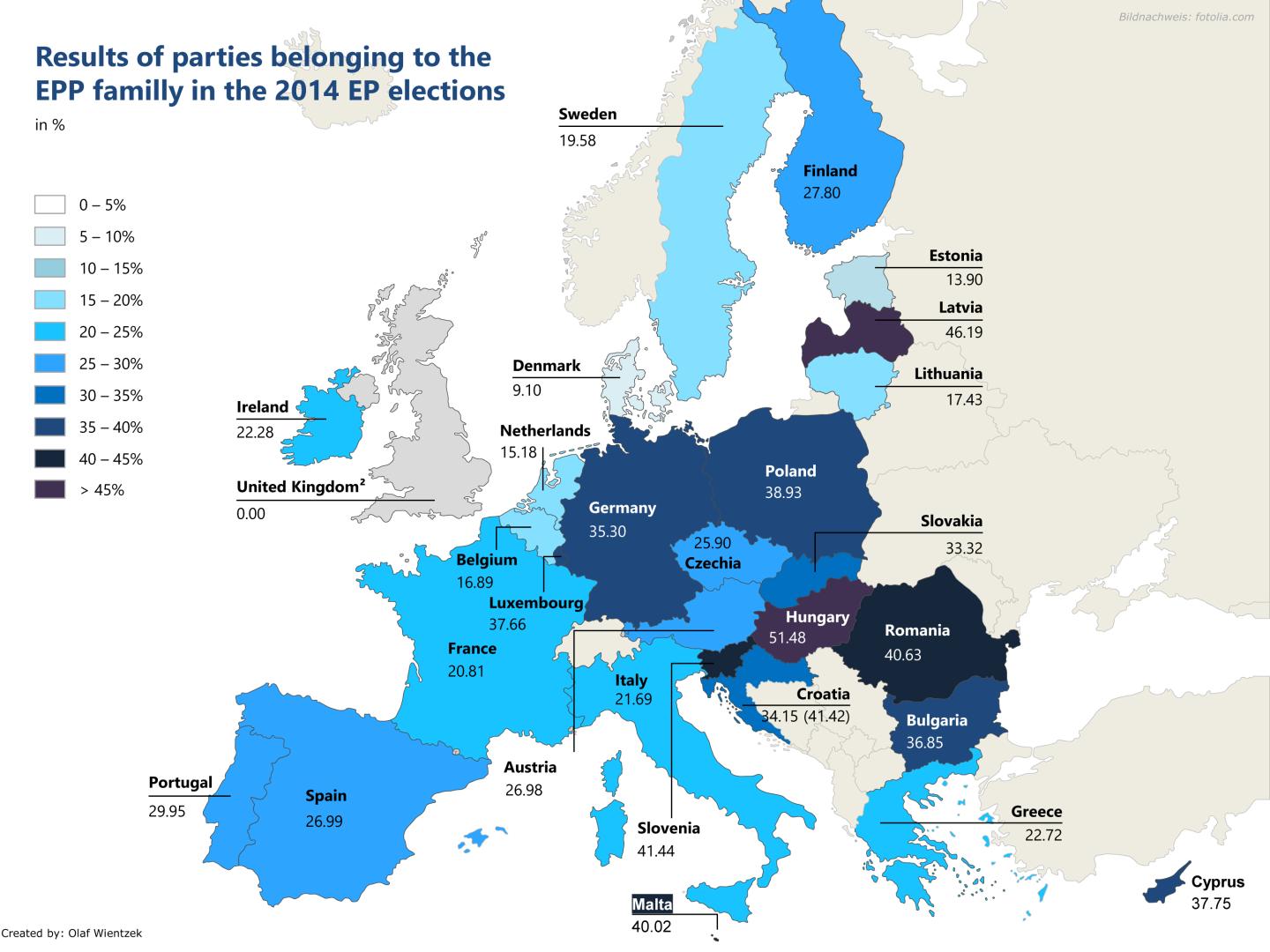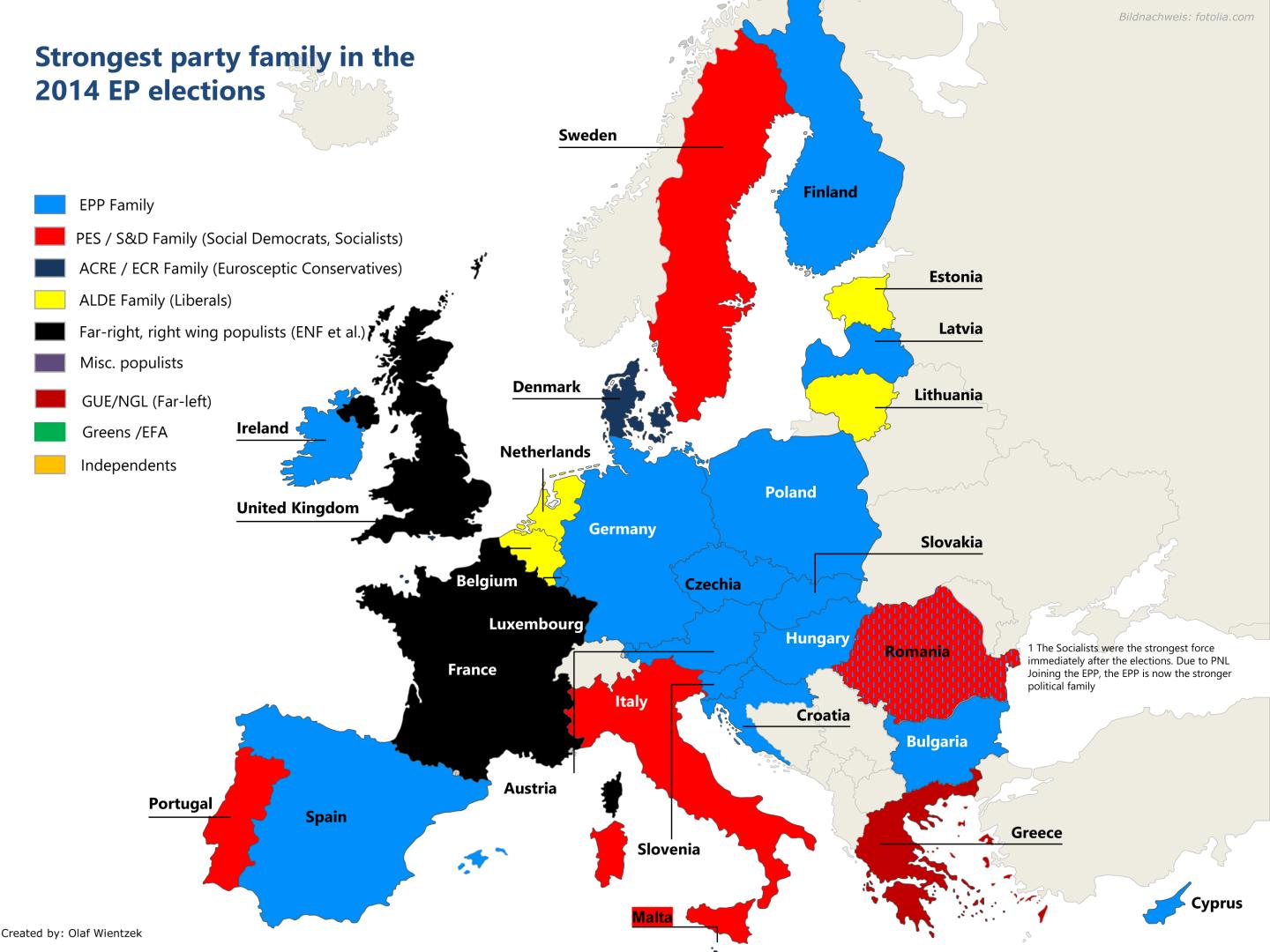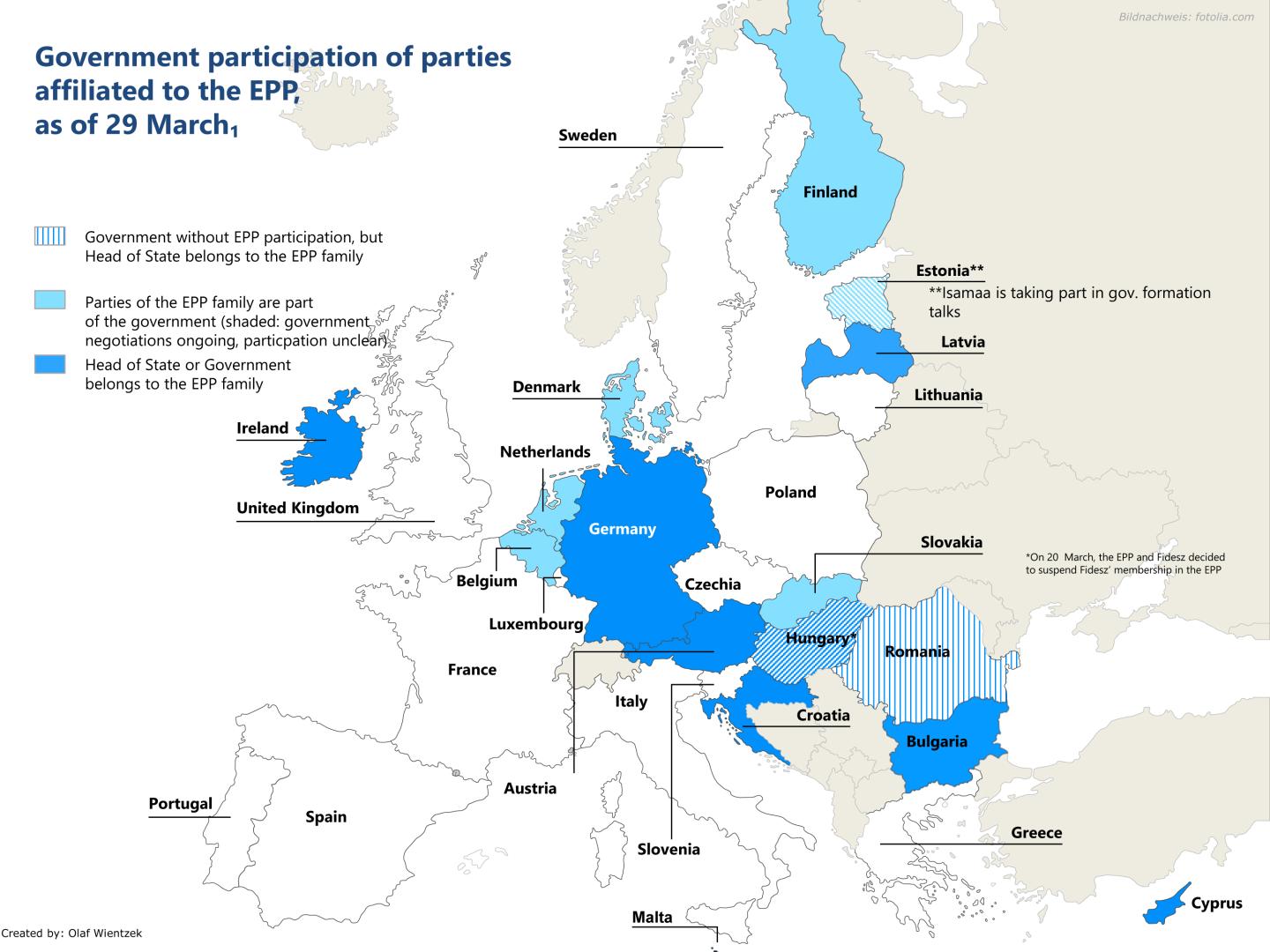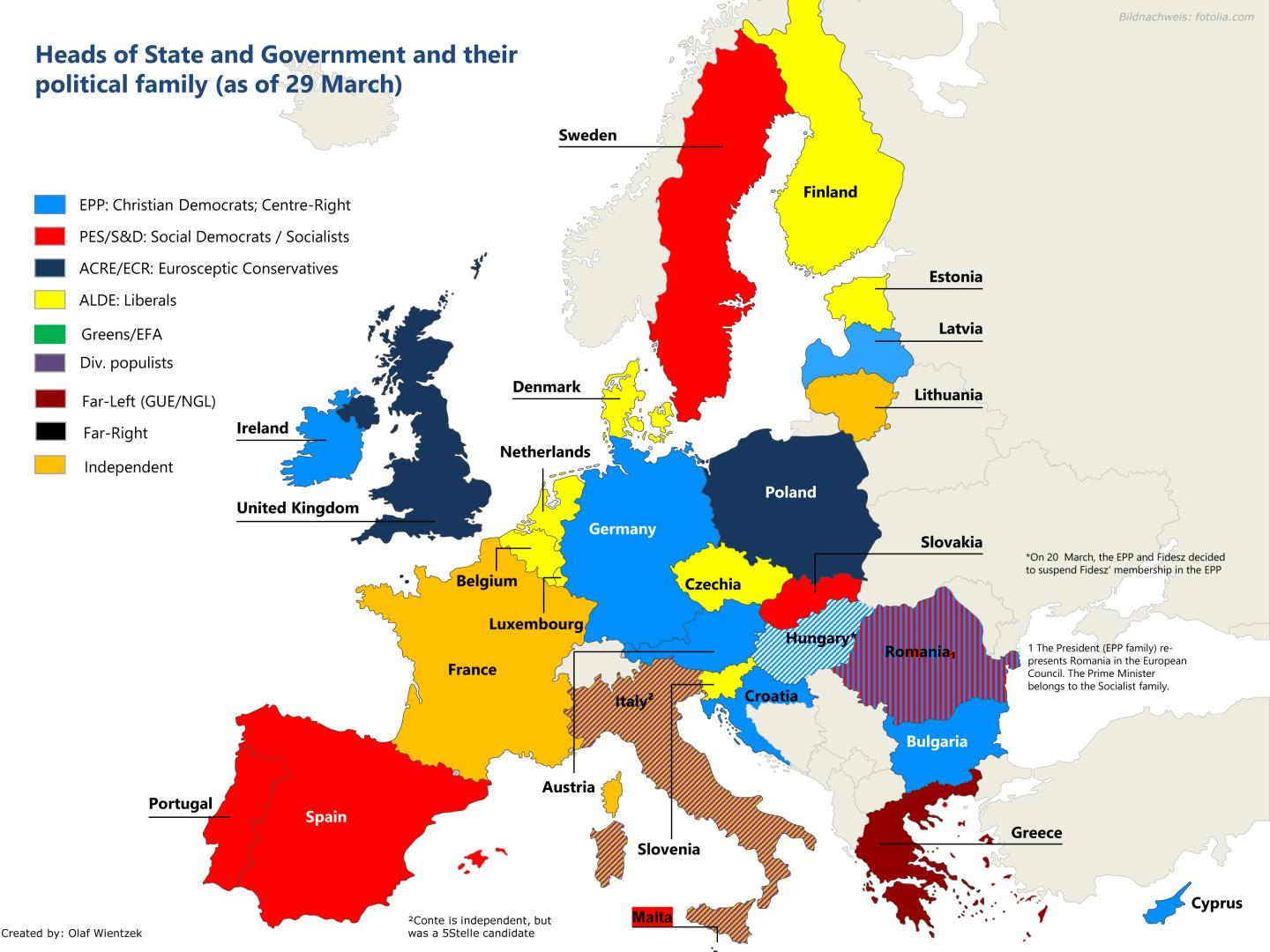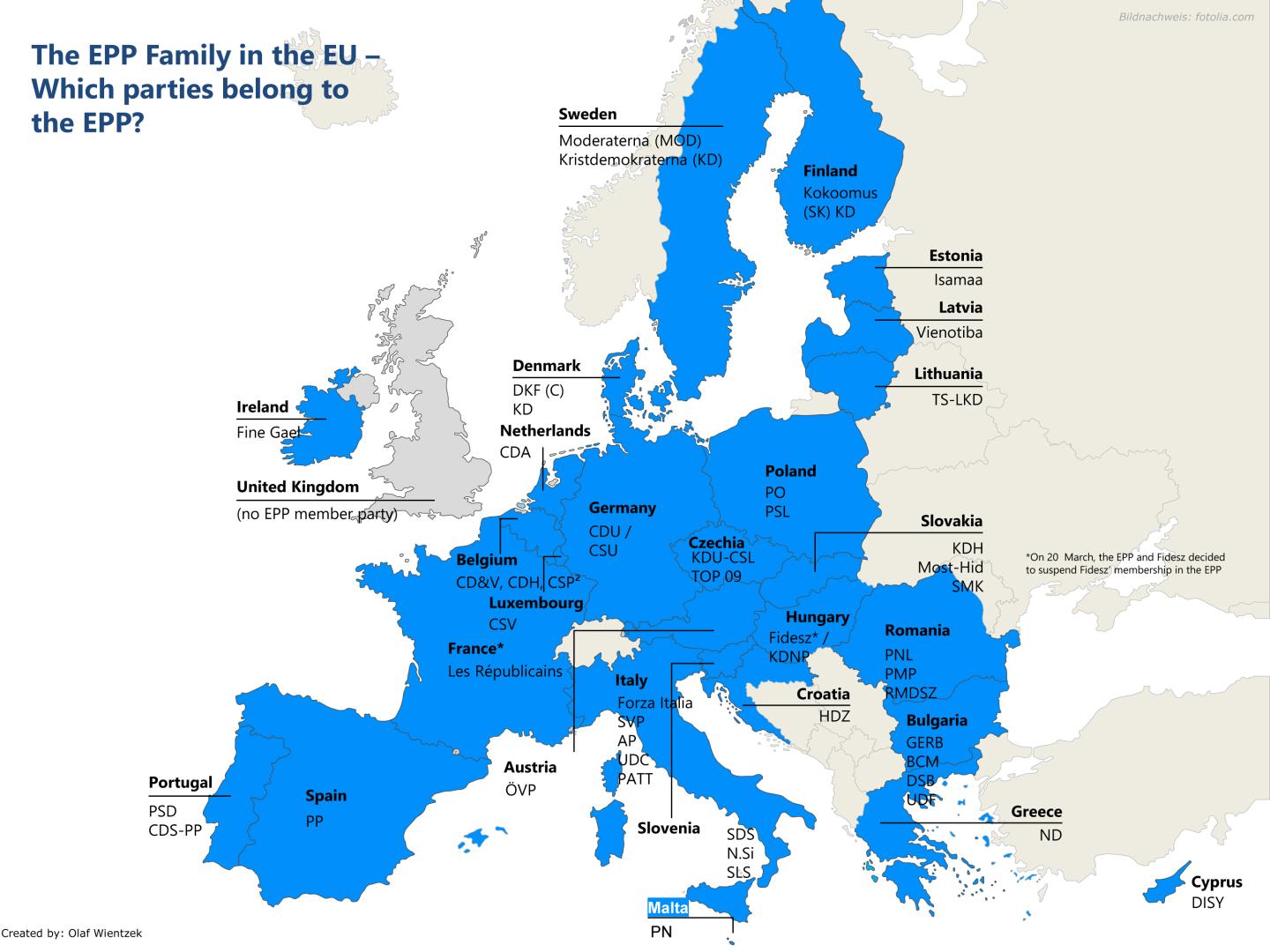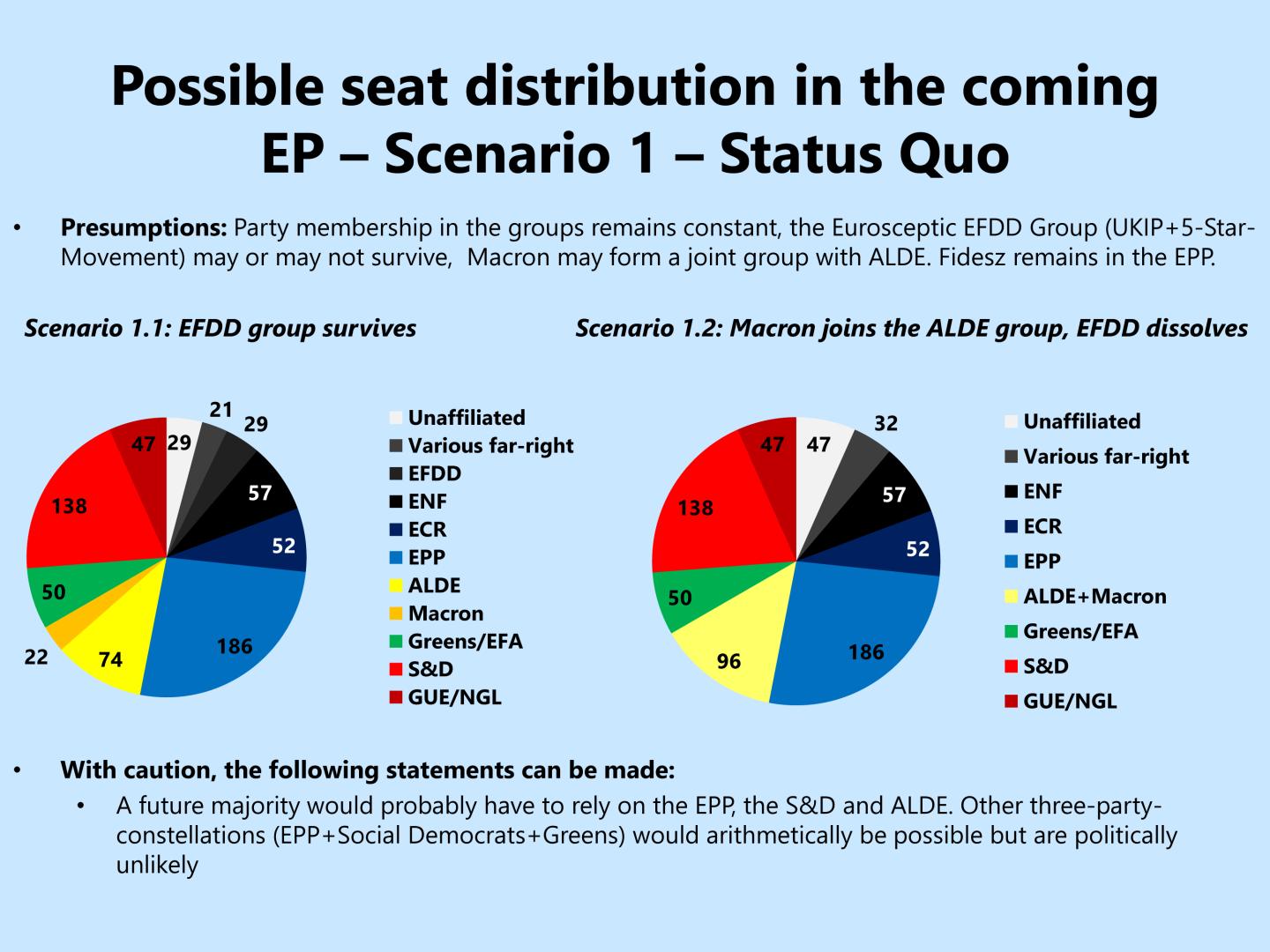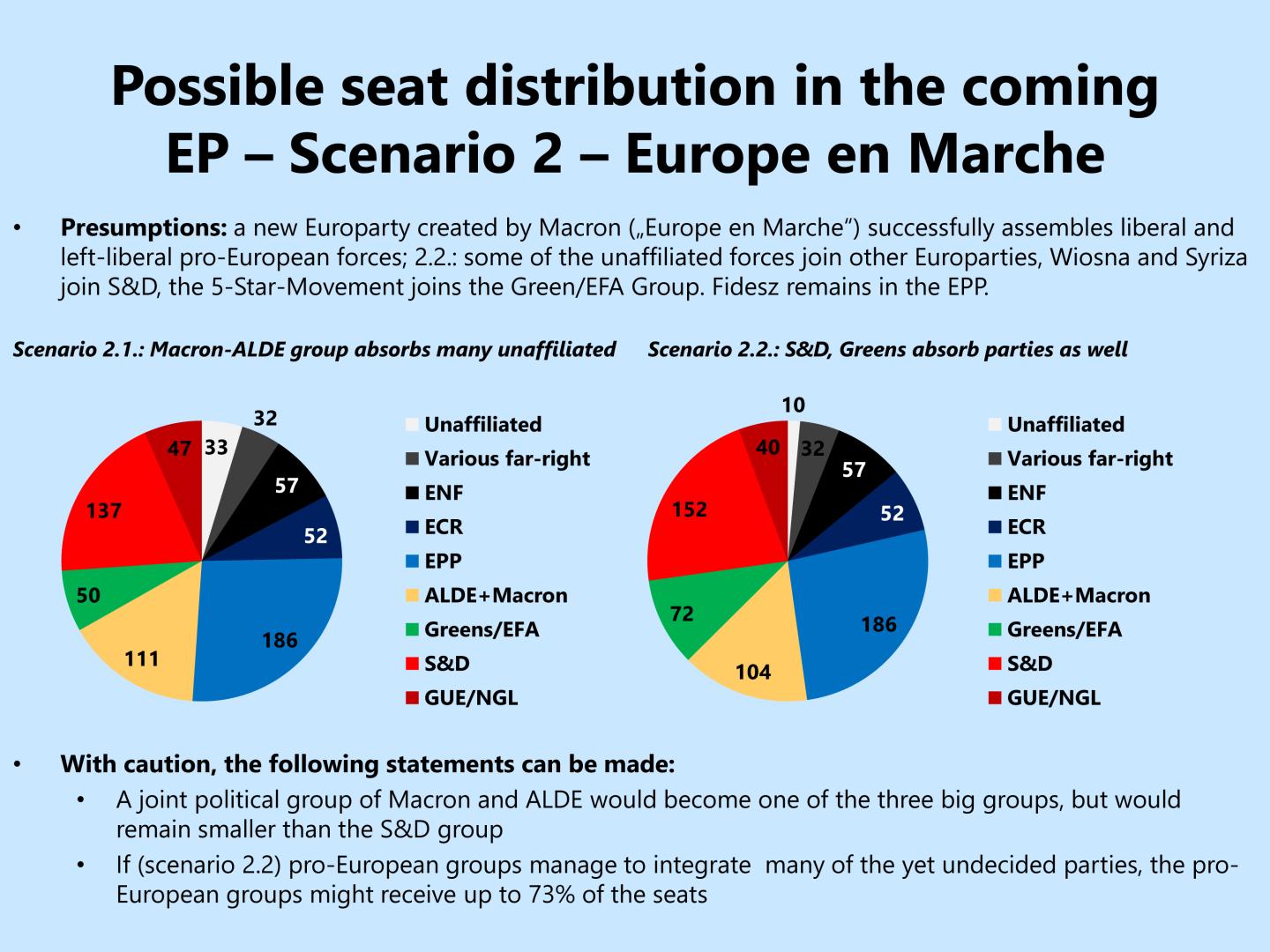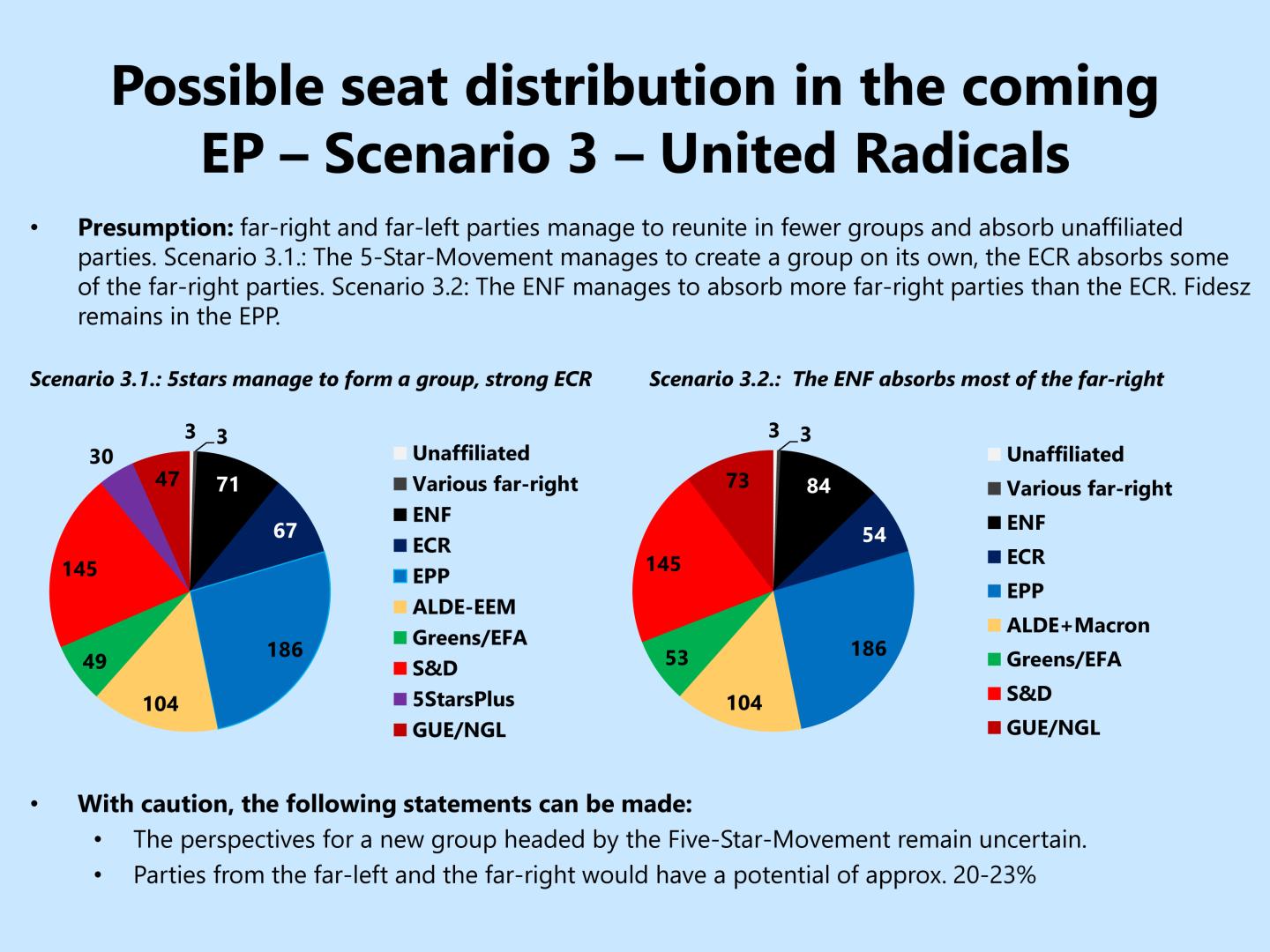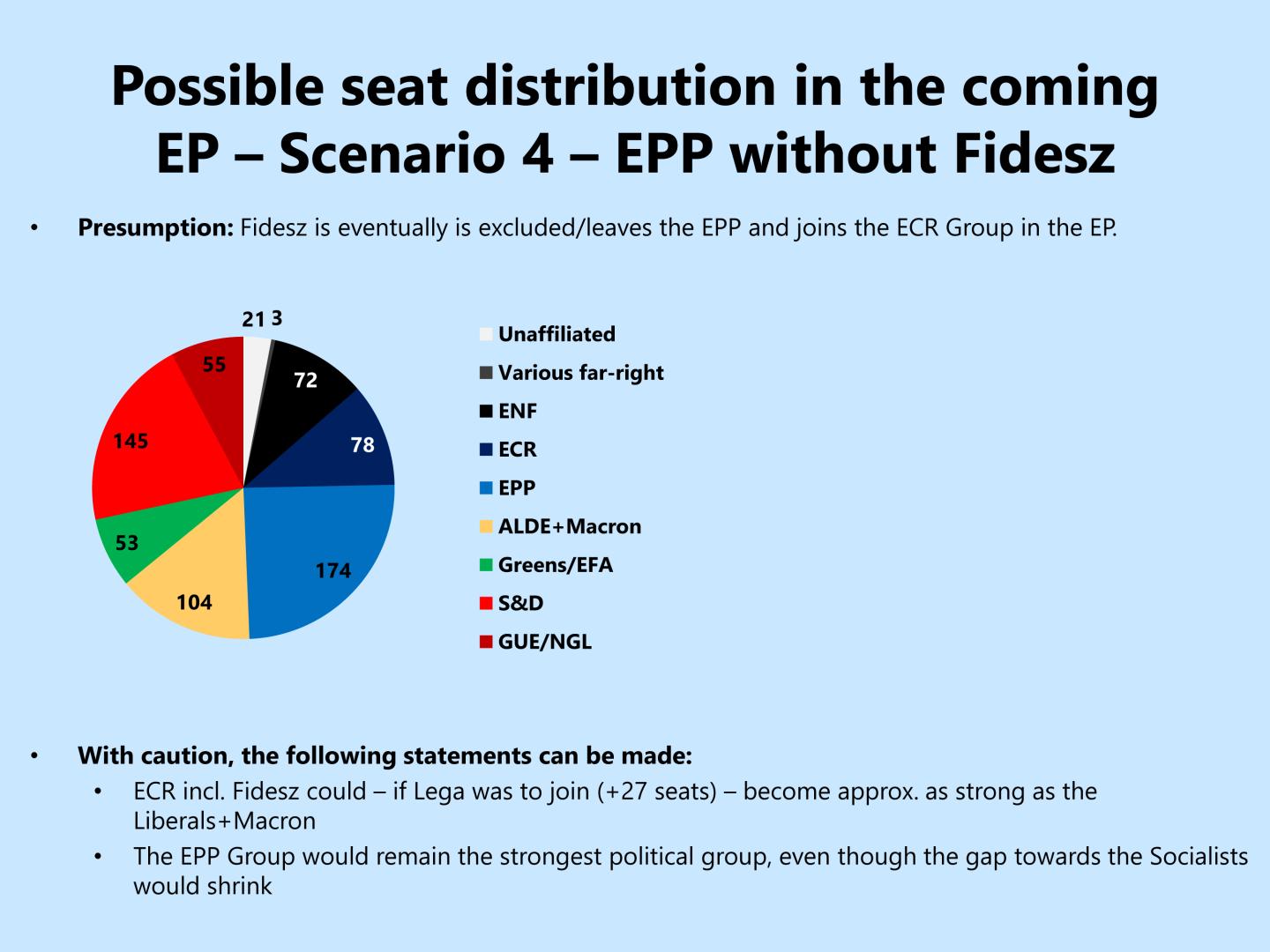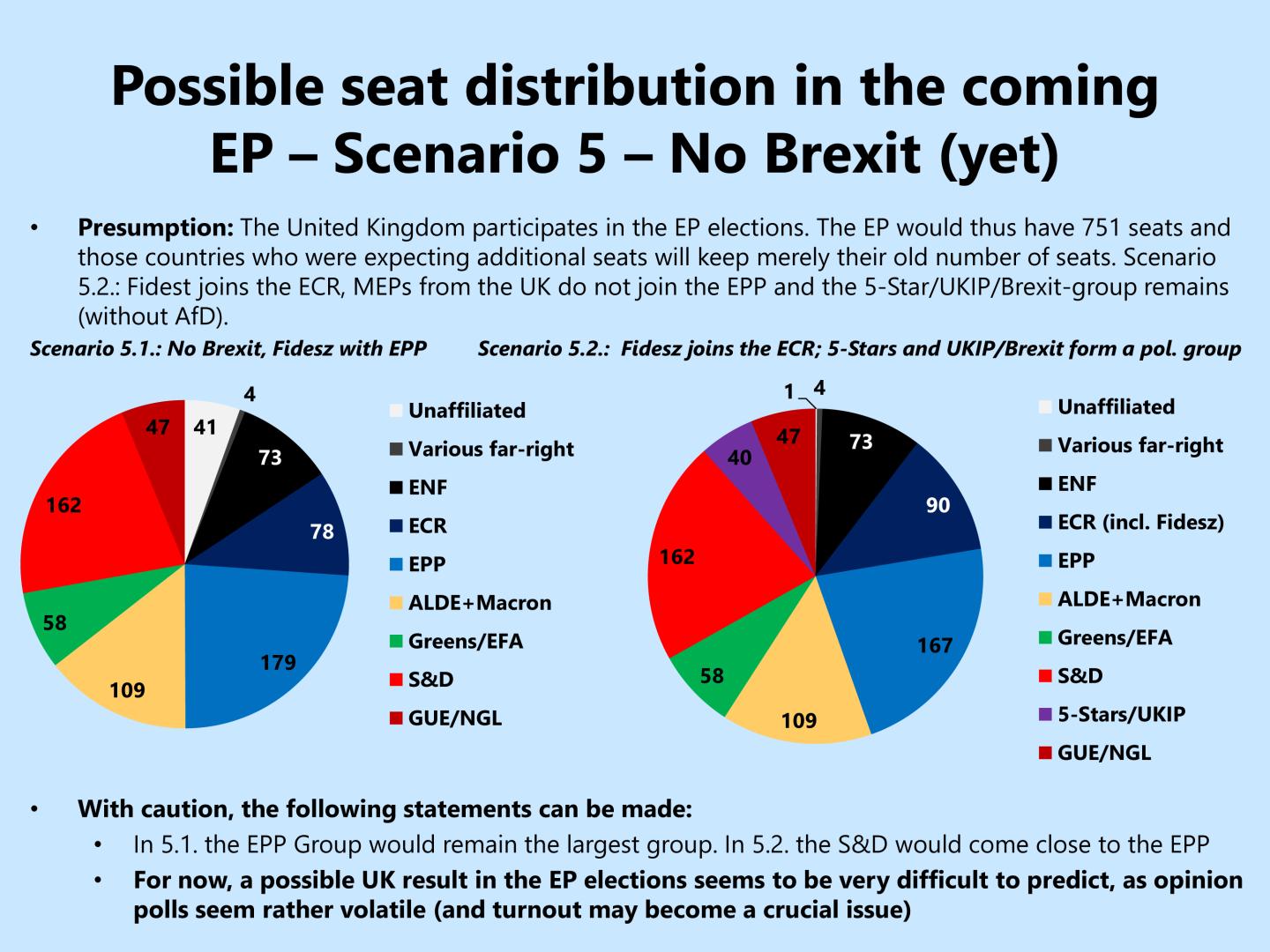EPP Party Barometer March 2019
Europäisches Parlament / Pietro Naj-Oleari
Cumulated election results of the PES/S&D family (Socialists & Social Democrats ) in the last national parliamentary election (29 March 2019)
Summary and latest developments
- Parties belonging to the EPP family are (in national polls) the strongest political family in 13* countries. The Socialist family is leading in 5/6 (0/+1 compared to the last barometer), the Eurosceptic Conservatives in 3 (-1), the Liberal family in 3. Independent movements (France), the Greens (Lithuania) and the far-right (in Italy) are the strongest political family in one country each. In Slovakia, Smer (S&D) and combined far-right parties are on the same level.
- If one looks only at the political colour of the strongest political force (and not the entire party family), an EPP party is leading in 9* countries, the Socialists in 9, the ALDE in 4, the ECR in 3, Greens, independents (Macron) and right-wing populists in one each.
- In many countries, the advantage of the leading political family in the opinion polls is very slim (France, Netherlands, Slovenia Slovakia, Finland, Belgium, Lithuania. Sweden).
- The EPP familiy enjoys a relatively strong support in the opinion polls (at or above 30%) in Germany, Hungary*, Romania, Austria, Bulgaria, Slovenia, Portugal, Greece, Ireland, Malta and Cyprus.
- In the European Council, 9* Heads of State and Government belong to the EPP family, 8 to the Liberals, 5 to the Socialists/Social Democrats, 2 to the Eurosceptic Conservatives, one to the European Left. 3 are formally independent.
* On 20 March, the EPP Political Assembly (supported by Fidesz) decided to suspend the EPP membership of Fidesz. Without the party, the EPP would be the strongest pol. family in 12 countries, provide the strongest single party in 8 countries and have 8 Head of State and Goverment in the EC.
Outlook on the EP elections in 2019
Introductory remarks:
- A low turnout (or a different mobilisation rate among competing parties) may have a strong impact
- The prominence of the „Spitzenkandidat“/national top candidates may influence voter preferences
With caution, the following statements can be made:
- Despite (significant) losses in several bigger member states, the EPP would likely remain the strongest political family (174-199 seats) in the EP (24.7-28.2% of seats), 162-186 seats without Fidesz.
- In relative terms, the share of the EPP group (currently 28.9% of the seats) would (in case of Brexit) only moderately be reduced (-0.7% up to -4.2%), as the EPP Group would suffer less from the departure of the British MEPs than other political groups (in comparison the S&D would be at ca. 19.6%, down from 25%).
- Parties of the far-right (ENF) and the far-left (GUE/NGL) would have a potential of about 20-23% of the seats.
- It is still unclear where the 5-Star-Movement will position itself.
- A coalition of EPP and S&D would not have a majority on its own but would need a third partner.
- Depending on the scenario, 66-73% of MEPs would continue belonging to moderate political groups (EPP, S&D, Liberals+Macron-led movement („Europe en Marche“), Greens).
- In comparison to the previous barometer the EPP increases slightly, the ECR as well. The ENF loses a few seats. The EPP would still clearly remain the biggest group. There is no scenario in which Socialists, Liberals and Greens have a majority of their own– especially keeping in mind that for a more solid majority in the EP, a coalition will rather need up to 380-400 seats.
- Due to several unknown variables (Will Macron form a group on his own or will he join the Liberals? Will the various far-right parties manage to unite? Will the 5-Star-Movement form a group on its own? Will Fidesz remain in the EPP Group after the elections? Will the UK participate in the EP elections?), five different scenarios will be developed.
Outlook on the EP elections in 2019 -Summary
Based on current opinion polls and weighing the different scenarios, the following seat distribution seems likely:
- EPP: 180-190 seats (without Fidesz 168-177 seats)
- S&D: 140-150 seats, without Brexit up to slightly more than 160 seats
- ALDE (plus Macron): 100-110 seatsGreens/EFA: 50-55 seats, with 5-Star-Movement approx. 70 seats
- ECR: ca. 60 seats, with Fidesz above 70 seats
- GUE/NGL: 50-60 seats
- ENF: 70-75 seats
- Potential Five-Star-Movement-group: rather unlikely as they may not meet the target for group formation (25 MEPs from at least 7 countries), potential: 25-35 seats, in case of UKIP joining ca. 40 seats possible
- EFDD rather unlikely to survive as a parliamentary group (not necessarily due to the numbers but for political reasons)



